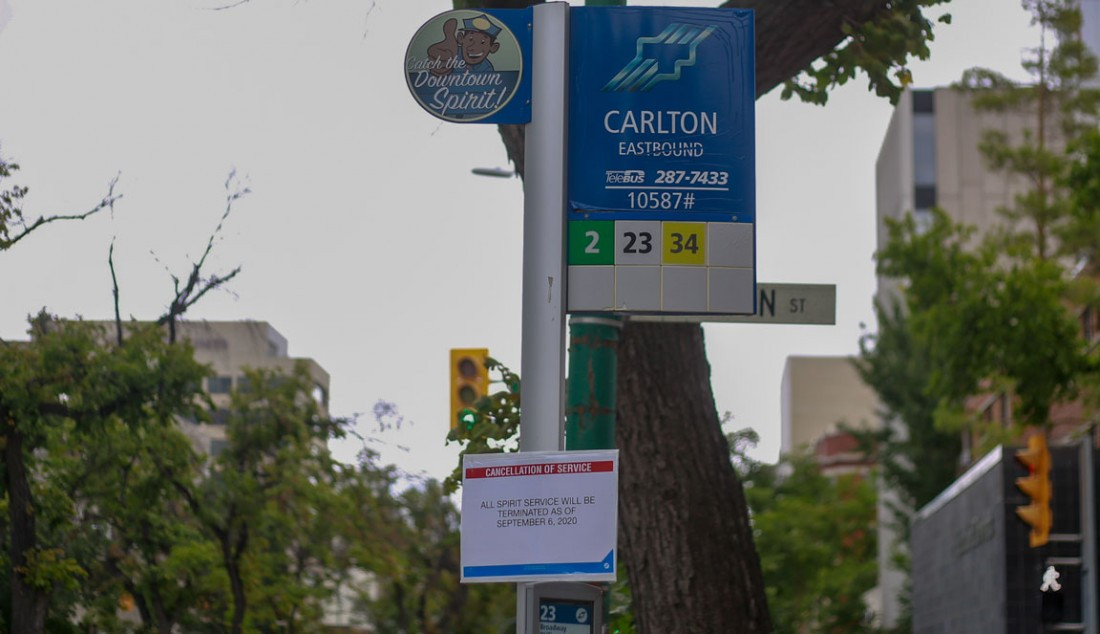Farewell to the Downtown Spirit
Winnipeg’s free public transit line terminated
On Sept. 6, all three routes of the Downtown Spirit were terminated. As Winnipeg’s only free bus line, its fleet covered popular downtown destinations including The Forks, the University of Winnipeg and parts of the Exchange District for inner-city residents, commuters and tourists.
Coun. Sherri Rollins, city councillor for Fort Rouge-East Fort Garry, a ward circled by the Downtown Spirit in its northernmost part, says the discontinuation was due to reduction measures in the City of Winnipeg’s multi-year budget.
“We need to find ways to not only continue the support for some low-income priorities but also acknowledge some redundancies in the system,” Rollins says. The budget included making public transit free for children under 12 and establishing a low-income bus pass. However, the beloved free bus line did not make it into the budget’s final draft.
James Wilt, author of a book on public transit titled Do Androids Dream of Electric Cars? argues that the cancellation of this service will have adverse effects for riders, drivers and the city’s urban core.
“Free transit is important as a program, because it means people can get on and off the bus whenever they need,” Wilt says. “It makes the downtown area a lot more accessible.”
The need for accessible, low-cost transportation is multidimensional, affecting low-income residents, seniors, people with disabilities and unhoused people disproportionately. As Wilt notes, an inability to access transit can lead to isolation and have adverse impacts on mental health.
When the fares are waived on buses, conditions are made safer for drivers. According to a survey conducted by the Amalgamated Transit Union (ATU), fare disputes account for 73.61 per cent of assaults on public transit workers.
“Taking away fares means that the transit worker doesn’t have to police fares in addition to all their other duties,” Wilt says.
As an occasional user of the Downtown Spirit herself, Rollins appreciated the service during the holiday season for its efficiency. As a ward councillor of a central riding, she understands that many residents in the area are disappointed by the termination of the free transit line.
“I’ve met with residents who like and want to keep the routes,” she says. “But (discontinuing the Downtown Spirit) was the rationale in terms of council accepting this as the budgetary reduction measure.”
Though no free alternative to public transit will exist in Winnipeg following the Downtown Spirit’s departure, riders are encouraged to apply for the WINNPass, which offers a 30 per cent discount to low-income residents.
However, Wilt provides a word of caution against the assumption that the low-income bus pass can act as a replacement for the former free transit line. At $71.45 a month, the pass may still be financially inaccessible for those who relied on the Downtown Spirit.
“It’s certainly not a replacement for what the Downtown Spirit was,” Wilt says. “If anything, we should be seeing an expansion of what (the Downtown Spirit) was in order to get more people onto public transit.”
Published in Volume 75, Number 01 of The Uniter (September 10, 2020)







